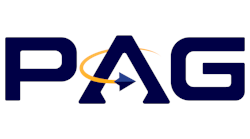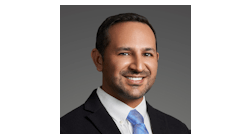For many maintenance shops, risk management can range from a business booster to a necessary evil. The way you approach risk management and insurance will depend on the relationship you have with your insurance provider, especially your broker.
There are many reasons to choose your insurance broker wisely. The right broker can improve your risk management plan by providing a comprehensive risk assessment as well as other value-added services at no additional cost. Conversely, the wrong broker may not understand your marketplace and underserve you. If you are using a commercial broker to handle your aviation insurance, he or she may not be equipped with the first-hand knowledge specific to the aviation industry. If you are using a nontraditional insurance program such as a risk retention group, or RRG, you may only be getting insurance, not any of the added benefits a traditional broker can provide for the same premium cost.
These key categories are important when choosing the provider for your aviation insurance.
Age of the brokerage: A brokerage that has been in business for a long time, preferably 20-plus years, will have built the experience and relationships with underwriters that will benefit you directly.
Aviation specific: Nonaviation specific brokers cannot work directly with aviation insurance underwriters; they must use a co-broker. By working with an aviation broker, you will remove a layer and ensure you are properly represented to aviation underwriters. In addition, the right aviation broker will possess direct knowledge of your operations and your business’s marketplace.
Additional services: Aviation brokers frequently provide value-added services that benefit aviation–related businesses. Services such as contract review and claims management by industry-specific professionals can help reduce your liability exposure and manage risk more effectively.
Size of the brokerage: Larger firms have specialized brokers, allowing them to concentrate on your type of business, and they can refer you to colleagues for related exposures. A good broker, for example, will have separate specialists for aircraft liability, products, and property/casualty. A larger firm will also provide a more extensive account service team.
Number of markets: Not all brokers are authorized, or appointed, to obtain quotes from appointed insurance companies, also called markets. If your broker is only appointed to one market or you work with an RRG you will only get the rates from that single market. Larger brokers can obtain quotes from every major aviation insurance market.
Aviation insurance is offered by several underwriters with different risk appetites. If you use a broker only appointed by one or two underwriters, or an RRG that can only quote its own insurance, you cannot compare rates. No single aviation insurance underwriter dominates the marketplace, so your broker should get competitive quotes from several underwriters in the current soft buyers’ market. You should expect a recommendation on the best underwriter for you, with an explanation of why it’s the best match.
Finally, when choosing your broker, remember that aviation insurance underwriters only work with one broker at a time. Once a broker submits an application for coverage, that blocks out any other broker you are working with as well. When changing brokers, you will be asked to sign a broker of record letter, or BOR. This indicates to aviation insurance companies that you have chosen to work with the broker named on the BOR. You have the option of rescinding a BOR by signing with another broker. Keep in mind, however, that once a market has quoted the coverage for one broker, it will not change the pricing for another.
All of these factors play an important role in choosing your insurance broker. Be sure you like and trust your broker and feel they are looking out for your best interest at all times. Review what each broker or nontraditional provider offers in addition to insurance coverage. Make sure they provide you with the right amount of service for your money, explain what you should expect from them, ensure that they are prepared to help if you make a claim. The extras available will help you make an informed decision on who you would like as your partner for this critical piece of your business.
Jamie Benthusen is the director of aviation products liability for NationAir Aviation Insurance, one of the country’s oldest and largest aviation insurance specialty brokerages. Benthusen has more than 15 years’ experience in sales and manufacturing for airframe and engine products and test equipment.



